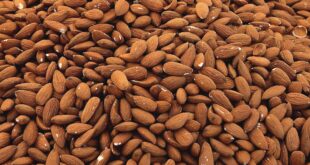A new study, published in the journal Frontiers in Neuroscience, shows that a number of polyphenolic compounds found in brewed coffee can inhibit the aggregation of beta-amyloid and tau — protein fragments common in Alzheimer’s and Parkinson’s diseases.
Drinking coffee may protect you against developing both Alzheimer’s and Parkinson’s diseases. Image credit: Couleur.
Coffee is one of the most widely consumed beverages worldwide, with approximately 500 billion cups consumed annually.
Coffee drinks are available in a variety of different flavors, roasting levels, and also with or without caffeine.
It is generally accepted that caffeine and caffeinated coffee elicit short-term improvements in alertness, attention and memory, but the ability to protect against age-related cognitive decline is less clear.
“Coffee consumption does seem to have some correlation to a decreased risk of developing Alzheimer’s disease and Parkinson’s disease,” said study senior author Dr. Donald Weaver, co-director of the Krembil Brain Institute.
“But we wanted to investigate why that is — which compounds are involved and how they may impact age-related cognitive decline.”
Dr. Weaver and colleagues hypothesized that compounds found in brewed coffee may elicit neuroprotective effects by inhibiting the aggregation of beta-amyloid, tau or alpha-synuclein proteins.
They investigated three different types of coffee (light roast, dark roast, and decaffeinated dark roast) and six coffee components (caffeine, chlorogenic acid, quinic acid, caffeic acid, quercetin, and phenylindane).
“The caffeinated and de-caffeinated dark roast both had identical potencies in our initial experimental tests. So we observed early on that its protective effect could not be due to caffeine,” said first author Dr. Ross Mancini, also of the Krembil Brain Institute.
“We then identified phenylindanes, which emerge as a result of the roasting process for coffee beans.”
Phenylindanes are unique in that they are the only compound investigated in the study that inhibits both beta amyloid and tau from clumping.
“So phenylindanes are a dual-inhibitor. Very interesting, we were not expecting that,” Dr. Weaver said.
As roasting leads to higher quantities of phenylindanes, dark roasted coffee appears to be more protective than light roasted coffee.
“It’s the first time anybody’s investigated how phenylindanes interact with the proteins that are responsible for Alzheimer’s and Parkinson’s,” Dr. Mancini said.
“The next step would be to investigate how beneficial these compounds are, and whether they have the ability to enter the bloodstream, or cross the blood-brain barrier.”
“The fact that it’s a natural compound vs. synthetic is also a major advantage,” he added.
“Mother Nature is a much better chemist than we are and Mother Nature is able to make these compounds. If you have a complicated compound, it’s nicer to grow it in a crop, harvest the crop, grind the crop out and extract it than try to make it.”
_____
Ross S. Mancini et al. Phenylindanes in Brewed Coffee Inhibit Amyloid-Beta and Tau Aggregation. Front. Neurosci, published online October 12, 2018; doi: 10.3389/fnins.2018.00735
 #Bizwhiznetwork.com Innovation ΛI |Technology News
#Bizwhiznetwork.com Innovation ΛI |Technology News




